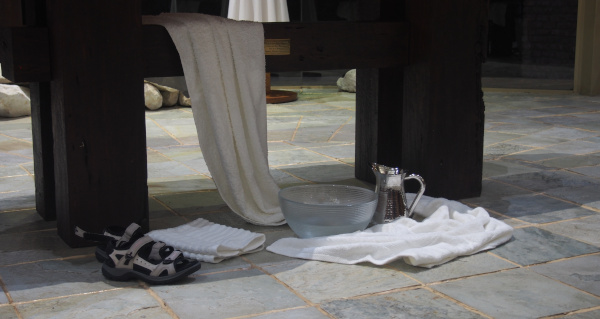Prayer
Betrayal on Thursday
April 9, 2020 | Abiding in God's Heart
Reflections from Sr AntoniaJean Yves Leloup, a French Orthodox theologian, writes.
“For any force, an opposing force may be found. But what is the opposing force of love? Refusal no doubt, or attraction to nothingness; even in these cases, did not love emerge the victor? If anger, rage and condemnation are the strengths of the weak, then kindness and forgiveness are the strengths of the strong. Love cannot look upon us from above; it wants to kneel at our feet, not to fawn on us or lower itself, but to heal our wounded feet, the lowest parts of our bodies, to help us stand and walk again. This was the God incarnated by Jesus.”
Jesus sat at table with his friend the betrayer, then knelt at his feet and washed them. At that moment perhaps Judas’ glance met that of Jesus, betrayer and betrayed, not “facing off’ as is our wont, but the betrayed loving and doing all that love can do… pouring itself out to the last drop for the betrayer, who is still his beloved.
Who among us has not experienced the pain of betrayal; and who among has not also betrayed someone?
On this night when love was poured out freely and copiously from a deeply suffering Jesus, perhaps we could wonder whether we are capable of the same love in the face of someone who has betrayed us. On this night there is no doubt that this is what Jesus is teaching us, through his own acts of love. “Do what I have done”, he says.
Would we able to call our betrayer “the Beloved”?
Philosopher Jamie Moran puts it like this: “Love that cannot return love for hate; love for indifference; love for contempt; love for opposition, is not love on fire with Christ’s passion.”
Betrayal responded to by love in the midst of excruciating suffering… “do not deny yourself this generosity, for it is in the gift of yourself that you will become divine.” (Jean Yves Leloup)
But Judas left the room.
References:
1. Jean Yves Leloup: “Judas and Jesus”
2. Jamie Moran: “The Wound of Existence”











